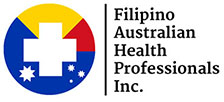Medical Corner: COVID-19 Update April 2020
“Epidemics start at a moment in time, proceed on a stage limited in space and duration, follow a plot line of increasing revelatory tension, move to a crisis of individual and collective character, then drift toward closure” – Charles Rosenberg
COVID-19 or SARS-CoV-2 has been declared a pandemic. To current date there are more than 2 million confirmed cases around the world. The first cases of COVID-19 were identified in late January in Australia and number of new cases rapidly increased through March then in April there has been a reduction in daily reported cases. There are more than 444,000 tests done in Australia with 6,647 confirmed cases, 4,291 recovered and 74 deaths. Rough estimate is 4 out 5 patients will recover from COVID-19 infection. Majority of Australian confirmed cases in all states acquired their infection from overseas including on board cruise ship or associated with recent travel to Europe or the Americas and South East Asia. The confirmed cases are seen across all age groups with equal proportion in males and females and majority of all cases in those aged 20 to 79 years. (COVID-19 weekly epidemiology reports, Australia 2020)
Data from report published by the Chinese Center for Disease Control and Prevention revealed that the severity of clinical symptoms vary from mild cases (81%) from non-pneumonia and mild pneumonia, 14% cases were severe and 5% were critical. Other patients with multiple comorbidties are prone to severe infection and may also present with acute kidney injury (AKI) and acute respiratory distress syndrome (ARDS). Sepsis and septic shock are further complications of COVID-19. According to CDC, older adults (over 65 yo) and serious chronic underlying medical conditions like cardiovascular disease, diabetes, cancer, COPD and hypertension increased risk of severe complications. About 20-30% of hospitalised patients required intensive care support. Long-term complications amongst SARS-CoV-2 survivors are not yet reported. The mortality rate for cases globally remains between 1-2%. (Evidence Based Management Guideline for the COVID-19 Pandemic-Review Article Int J Surg UK April 2020)
The management focused on the provision of supportive care with oxygen therapy representing the major treatment intervention. Australian Health Protection Principal Committee (AHPPC) coronavirus COVID-19 statements recommends symptomatic support and supplemental oxygen therapy for those with severe illness because of COVID-19 infection. If the patient experiences extreme respiratory distress, or continues to deteriorate and cannot be effectively managed with supplemental oxygen, intubation and mechanical ventilation may be necessary. In cases of septic shock or haemodynamic instability, haemodynamic support including vasopressors, may be required in an Intensive Care Unit setting. For deteriorating or critically ill patients, supportive care is still currently recommended as best practice. (Australian Health Protection Principal Committee (AHPPC) coronavirus (COVID-19) statements 7 April 2020)
Experimental use of medications is not recommended and should only be prescribed as part of a clinical trial. There are currently clinical trials both within Australia and internationally to test their efficacy and safety. Off-label compassionate drugs and experimental therapies include:
- Antimalarial drugs (Chloroquine and Hydroxychloroquine)
- Antivirals (Favipiravir, Umifenovir, Remdesivir)
- Antiretrovirals (Ritonavir + Lopinavir (“Kaletra”)
- Immune modulators (Interferon α, β, γ or λ; β)
- Biologic Disease Modifying Anti-Rheumatic Drugs (Interleukin-6 inhibitors, such as Tocilizumab and Sarilumab)
- Others include BCG vaccine (ongoing BRACE trial in healthcare workers from Australia), using Convalescent Plasma from recovered COVID patients and use of Hyperbaric Oxygen therapy
Recently published randomised trial from Brazil reported that higher dose of chloroquine should not be recommended for COVID-19 treatment due to increase risk of cardiotoxicity and death. In large studies you might find problems with low-dose group too (CloroCovid-19 Study MedRxiv Preprint 2020). Recent open label randomised trial using Kaletra (Lopinavir/Ritonavir) a protease inhibitor drug used in HIV was trialled in patients with severe COVID pneumonia in China reported no difference in reduction in viral load or clinical outcome compared to standard care (Cao et al., NEJM, March 2020). Preliminary results using Remdisivir infusion in phase 2B trial in moderate COVID illness is promising but need to validate in larger randomised trial. (Grein et al NEJM April 2020)
Due to safety concerns and the unknown effects of prescribing these medications for off-label usage, such as for COVID-19 infection, is not recommended. There are no current recommendations to treat patients with mild to moderate COVID-19 illness. It is also not recommended to use medications prophylactically (McCreary 2020).
Numerous preventative strategies and non-pharmaceutical interventions have been employed to mitigate the spread of disease including careful infection control, the isolation of patients and particularly the social distancing which is scientifically proven to flatten the pandemic curve.
Currently there is no vaccine available in novel coronavirus COVID-19 or SARS-CoV-2. The researchers from Iceland found 40 mutations specific variants or small changes in genome of coronavirus needed to be confirm. Australian expert in vaccine development Professor Ian Fraser (who worked on HPV vaccine) believed that novel coronavirus posed a number of challenges and will take years to develop vaccine.
Based on scientific experts the future of Coronavirus remained unclear although there is some mathematical models being used by scientists to predict the pandemic will continue for some time until an efficient vaccine is found.
Dr Ramon Joel Seastres MD. FPCP, FPCC, EDIC (Europe)
Adult Cardiology - Intensive Care Medicine
Director of Medical Program, FAHPI
Email: fahpinc@gmail.com
Canberra, Australia
